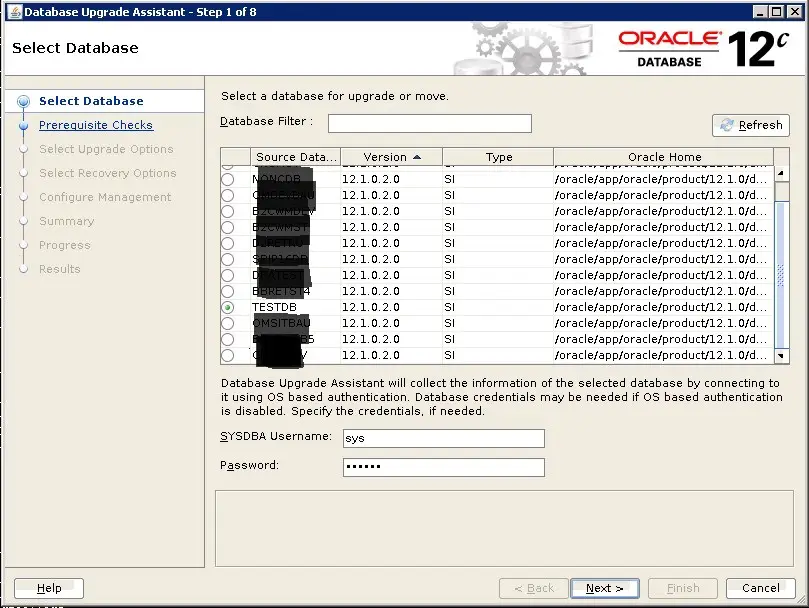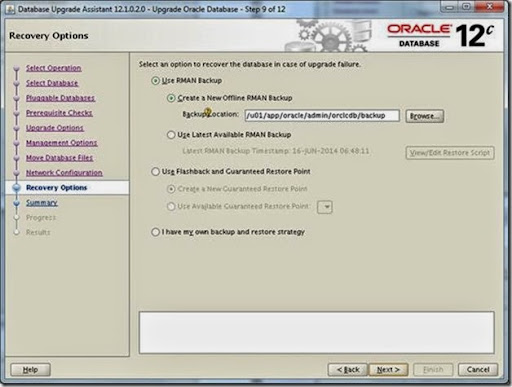


Space usage in the flash recovery area is automatically monitored by Oracle database. Archived logs are eligible for deletion once they are obsolete.

If a file is not yet obsolete under the RMAN retention policy, then it will not be deleted. If a file does not have a retention policy associated with it, or it's a permanent file, then it will never be deleted. This is set via the RMAN configure retention policy command. The RMAN retention policy determines retention for files in the flash recovery area. The following command changes the flash recovery file size: ALTER SYSTEM SET DB_RECOVERY_FILE_DEST_SIZE= ' ' Setting the value of db_file_dest_size blank or null disables the flash recovery options. ALTER SYSTEM SET DB_RECOVERY_FILE_DEST= '/u01/oradata/o10g/flash'įlash recovery file size also can be dynamically changed. The following command changes the flashback recovery file to a different location than the original one. These parameters can be changed when the database is up and running. The new DBA view, DBA_OUTSTANDING_ALERTS, allow you to check for information on outstanding issues with the flash recovery area, as shown in this example: Select * from dba_outstanding_alerts įlash recovery parameters are dynamic. As files are added or removed from the flash recovery area, records of these events are logged in the database alert log. The maximum size of the flash recovery area is defined via database parameters. The flash recovery area is created in a specific location (defined by a file system, or use of ASM).
#Alter system db recovery file dest size archive
If no default location for LOG_ARCHIVE_DEST is provided, then flash recovery area is used to store the archive logs. If a flash recovery area is configured, archival is enabled automatically and LOG_ARCHIVE_DEST_10 is configured to flash recovery area. The default location for the RMAN files in general (backup-set pieces, etc.) is the flash recovery area, if it is defined.ĭatabases should be in Archive log mode for flashback recovery. The default location for the RMAN datafile copies is the flash recovery area, if it is defined. The default location for the RMAN control file autobackups is the flash recovery area, if it is defined. When you configure the flash recovery area, the parameter log_archive_dest_10 is automatically configured, and archived redo logs are archived to that destination, as well as any other archive log destinations.įlashback logs are stored in the flash recovery area, if it is defined. One copy of the control file is created in the flash recovery area when the database is created. The table below lists the file types that are backed up within the flash recovery area. The flash recovery area can use locally attached storage, Clustered File Systems, or Oracle 10g's new Automated Storage Management (ASM) features. The flash recovery area is an area of disk that is defined for use for recovery-related files. The flash recovery area, which allows you to centralize storage of all recovery-related files, is new in Oracle 10g.


 0 kommentar(er)
0 kommentar(er)
